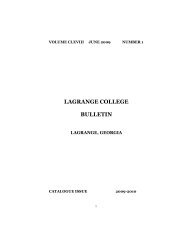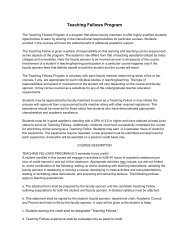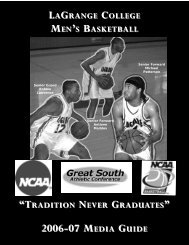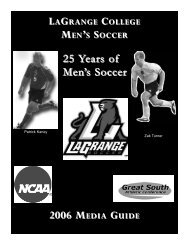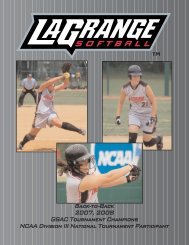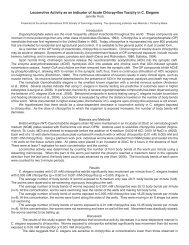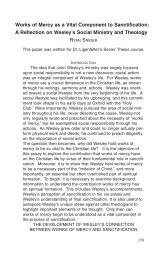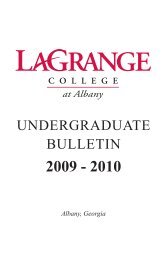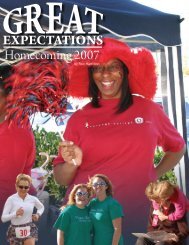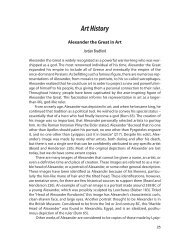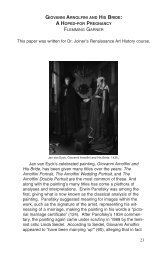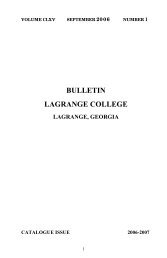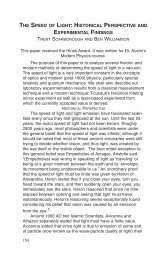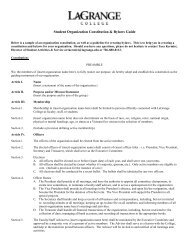undergraduate bulletin - LaGrange College
undergraduate bulletin - LaGrange College
undergraduate bulletin - LaGrange College
Create successful ePaper yourself
Turn your PDF publications into a flip-book with our unique Google optimized e-Paper software.
RESIDENCY REQUIREMENTS<br />
There are two ways in which a student must meet residency requirements for graduation:<br />
1. The student must be in residence for the last 39 credit hours;<br />
or<br />
2. 51 credit hours of the last 60 credit hours must be earned at <strong>LaGrange</strong> <strong>College</strong>.<br />
With prior approval of the academic advisor and the Provost, up to nine (9) hours of the last 60<br />
credit hours may be earned as a transient student at another accredited institution. Transient<br />
credit is awarded only for courses in which the grade or "C-" or better is earned.<br />
CLASSIFICATION OF STUDENTS<br />
A student is classified as a first-year student if he or she has earned fewer than 30 hours of<br />
credit. A student is classified as a sophomore if he or she has earned 30-59 hours of credit. To<br />
be classified as a junior, a student must have completed 60 earned hours of credit. A student is<br />
classified as a senior upon having earned 90 hours of credit. A student should be alert to the fact<br />
that a minimum of 120 hours is required for graduation and that some majors may require more<br />
than 120 hours. Attaining these minimum progression requirements may not be sufficient to<br />
insure graduation within the two semesters of the senior year.<br />
ORIENTATION<br />
All first-year students are introduced to <strong>LaGrange</strong> <strong>College</strong> through an orientation program called<br />
First Week Experience that takes place the week before classes begin. The program is<br />
composed of a Student Life component along with an academic component. The Student Life<br />
aspect is designed to acquaint first-year students with various phases of the life of the <strong>College</strong>,<br />
including traditions, procedures, and regulations. Students benefit from a proper introduction to<br />
the opportunities and responsibilities of college life.<br />
The academic component of the program requires first-year students to attend academic<br />
symposia where faculty present their research interests, academic opportunities, and standards<br />
for excellence. In addition to the symposia, the first-year student is also required to attend<br />
Cornerstone classes to discuss the symposia and the assigned summer reading as well as a twohour<br />
Honor Code Presentation and Signing Ceremony.<br />
Following the First Week Experience, students will enroll in First-Year Cornerstone (CORE<br />
1101) and First-Year Orientation (CORE 1102), the first two required classes of the Core<br />
Curriculum. CORE 1101, as an academic course, has as its main goal to introduce entering firstsemester<br />
students to what <strong>LaGrange</strong> <strong>College</strong> values in an interdisciplinary liberal arts education.<br />
CORE 1102 is an extended orientation course that seeks to improve students‘ academic success<br />
and to ease the transition into college life.<br />
59



